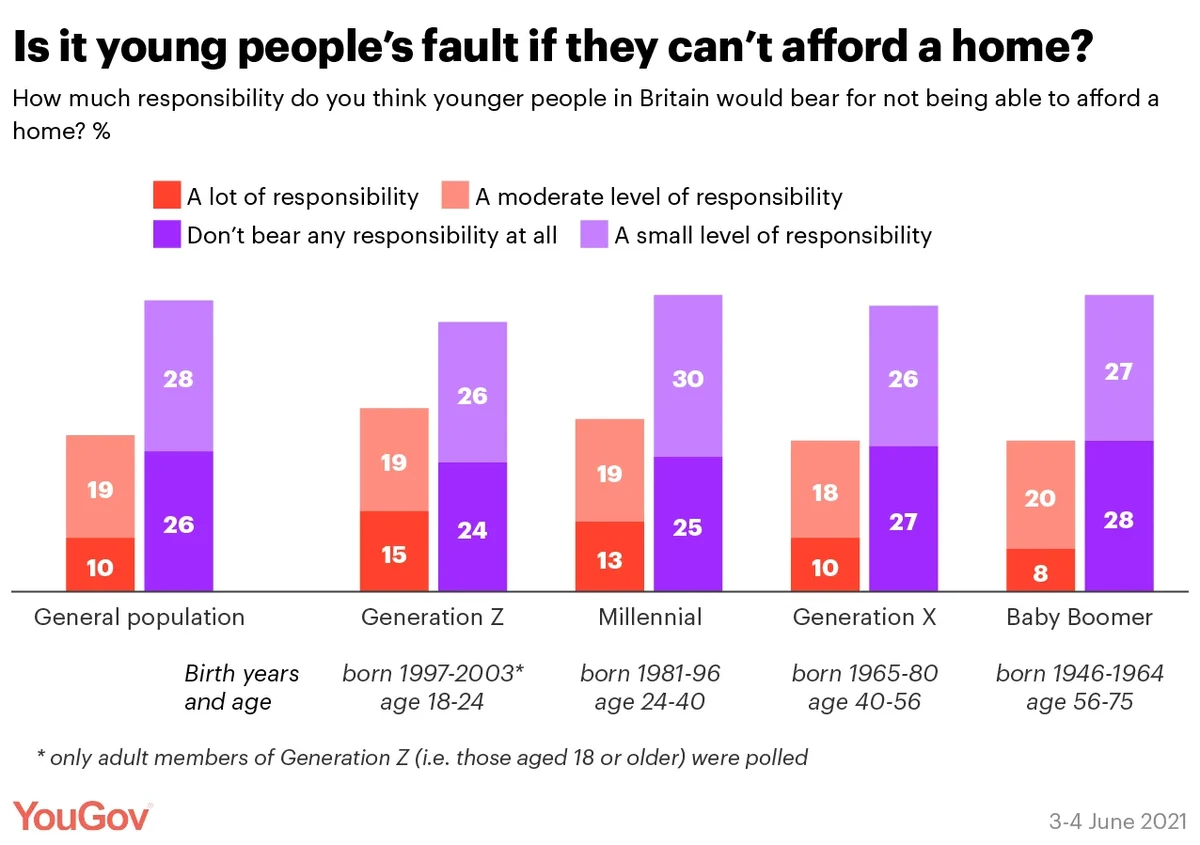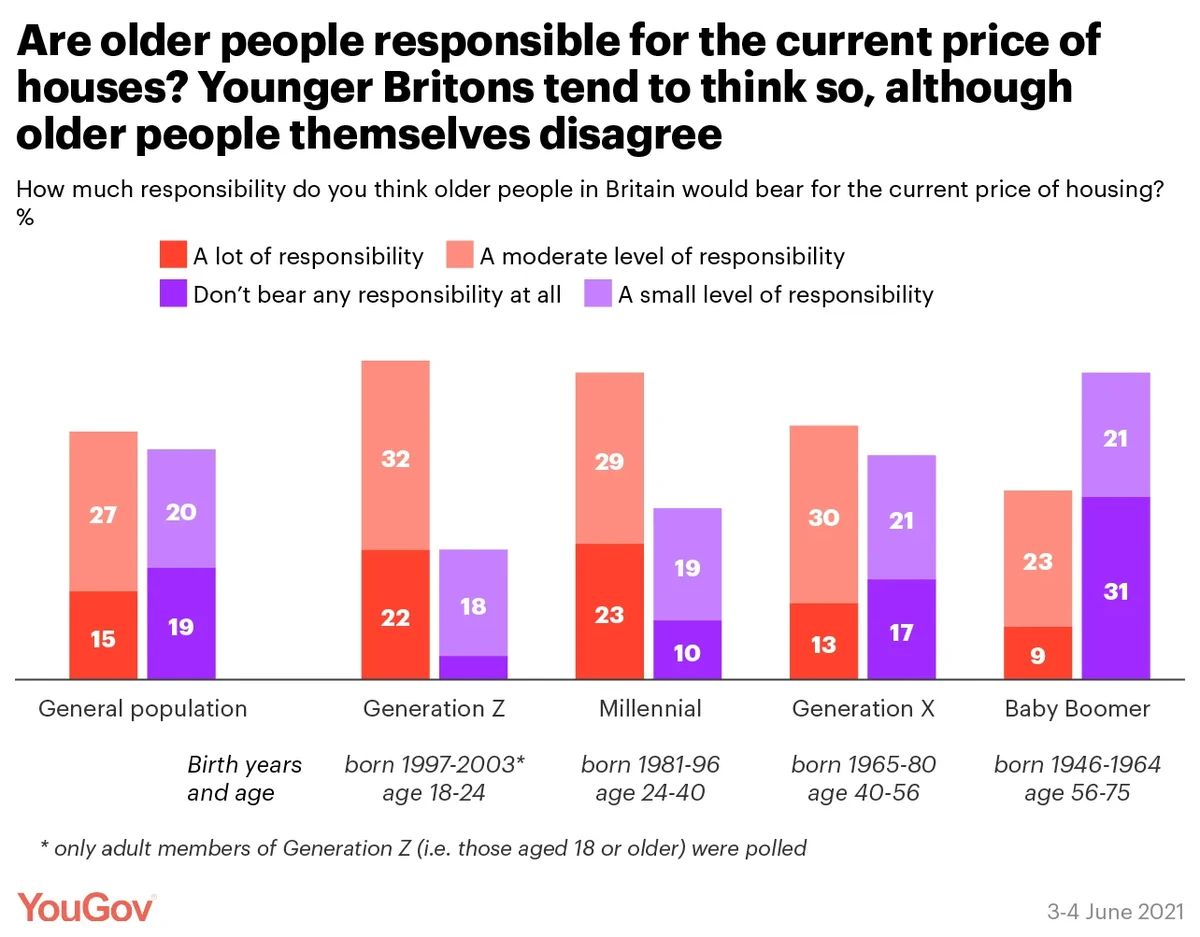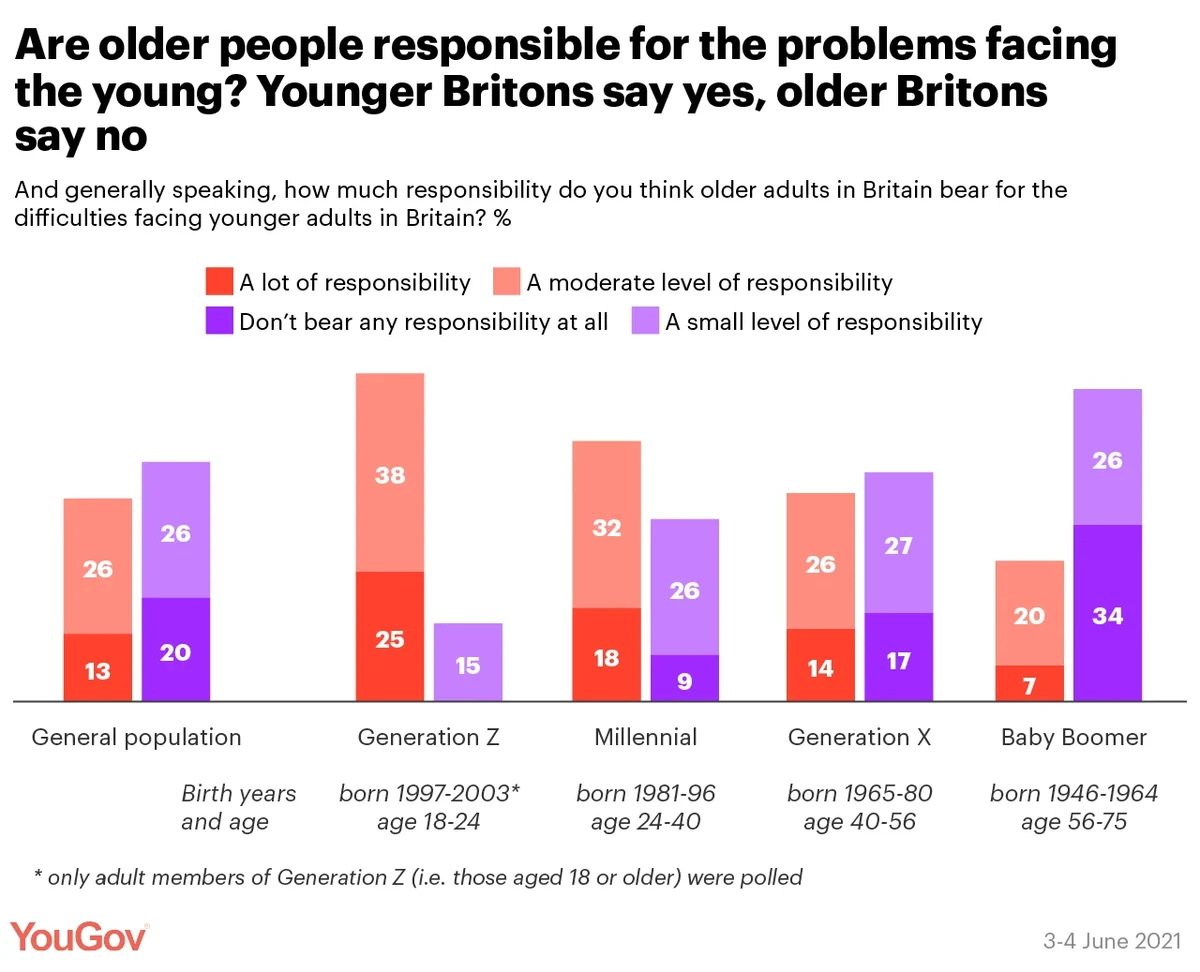Britons generally say no, but the generations are divided on whether old people are to blame for high house prices
TV presenter Kirstie Allsopp managed to offend much of Britain’s youth this week when giving her view on the struggles facing young people getting on the housing ladder. Allsopp seemed to suggest that young people should expect to have to stay with their parents for years saving every penny, forgoing life comforts like coffee and Netflix, and then move across the country in order to afford a home.
The comments were particularly galling for many in light of Allsopp’s own housing history: her aristocratic parents financially assisted in the purchase of her own first at age 21, at a time when housing was much more affordable.
Coverage of the article has rekindled the debate on whether older people in Britain understand the struggles the young face, and to what extent they are responsible for those struggles themselves.
A YouGov study conducted in the summer last year looked at attitudes towards several intergenerational issues, including whether young or old are to blame for high house prices and low home ownership.
Few Britons (10%) consider younger people to bear a lot of responsibility for not being able to afford a home. One in five (19%) consider younger generations to bear a moderate level of responsibility, but most say they bear little (28%) to no responsibility (26%) if they find themselves unable to buy a house.
There is cross-generational consensus on this issue, with people from all generations tending to say that young people bear little to no responsibility.

If young people aren’t to blame for house prices, are their elders responsible? Here the generations are bitterly divided.
A mere 4% of adult members of Generation Z (the generation born 1997-2012, with respondents being aged 18-24 at the time of the survey) say that older Britons have no responsibility at all for rising house prices, while 18% say they have only a small amount of responsibility.
By contrast, half of Baby Boomers (those born 1946-1964, aged 56-75 at the time of the survey) say they have little or nothing to do with it, including three in ten (31%) who absolve their generation of any responsibility whatsoever.

On other issues facing young or old people, there is less intergenerational conflict – although society itself is divided. For instance, on the subject of whether young people are to blame for not being able to get a secure job, 39% of Britons think they bear a lot or moderate level of responsibility, while 45% think they bear a small amount or none at all, with these figures generally consistent regardless of what age someone is.
Britons say older people are to blame if they’ve not saved up much of a pension (58% vs 27%) or weren’t able to go to university when they were young (60% vs 21%).
By contrast, Britons think it is not older people’s failings that mean they can’t afford social care. Most (55%) say they bear little to no responsibility, compared to 24% who think they have a lot or moderate share of the responsibility.
Again, there is little difference on these opinions by age, with the main variation being Gen Z having a much higher “don’t know” response rate.
Are the old to blame for the challenges facing the young in Britain?
Taking a step back from specific issues to look at wider attitudes shows that the generations are divided on whether or not the old are responsible for the challenges the young face today. As with the housing situation, younger generations tend to say the old are to blame, Gen Z saying older people bear a lot/moderate amount of responsibility by 61% to 17% and Millennials (those born 1981-1996, aged 24-40 at the time of the research) by 51% to 34%.
Baby Boomers, by contrast, disagree, with only 27% giving the same level of accountability as their younger peers. Some 60% say they bear little to no responsibility for the travails of younger generations.

Younger Britons are not, however, generally seen as accountable for the difficulties facing the elderly. Attitudes are basically the same across all generations, with 22% of the general public saying that the young bear a lot/moderate level of responsibility for the problems old people are encountering, while 61% say they bear little to none.






